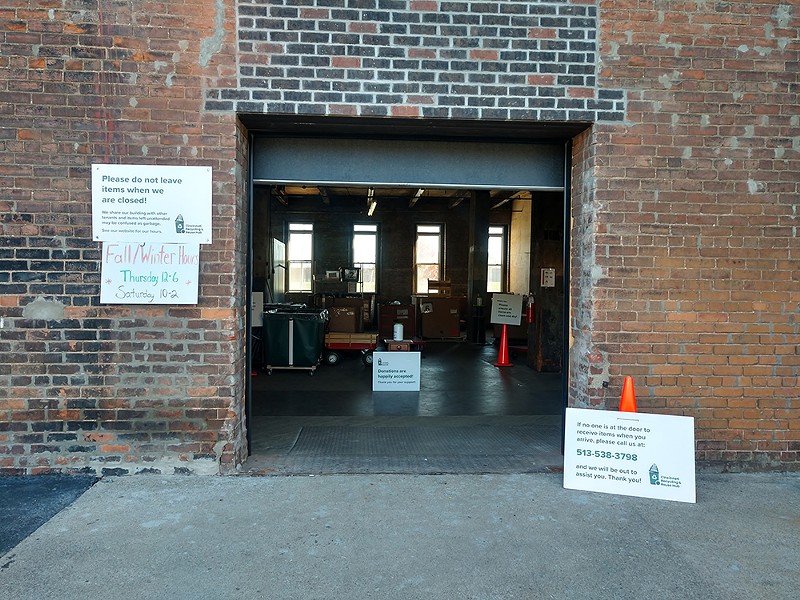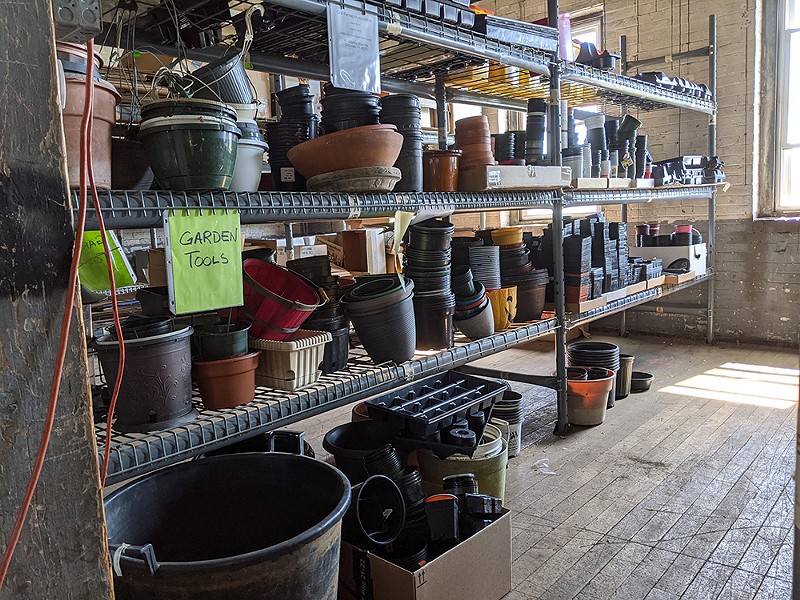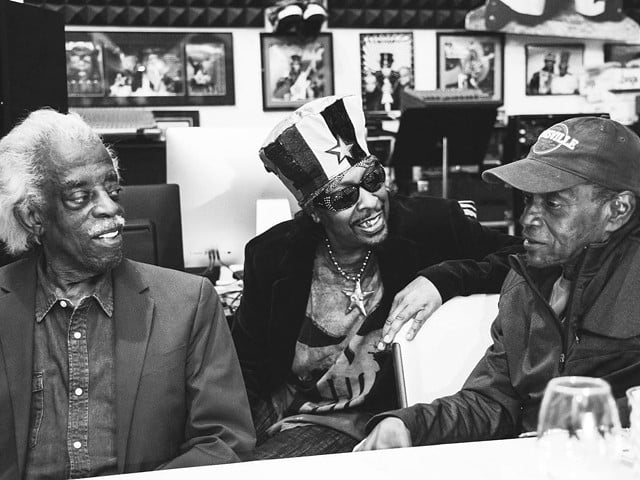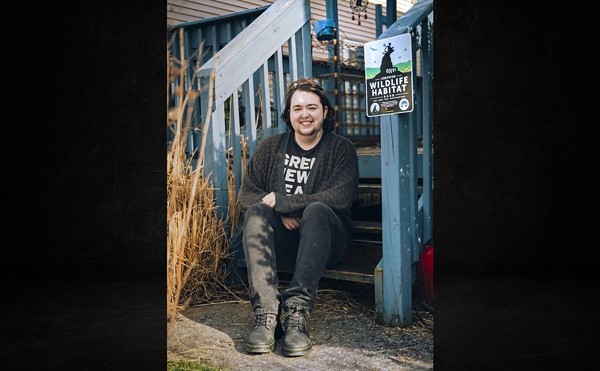
Every American can most likely recite the “3Rs” of recycling: “Reduce. Reuse. Recycle.” It’s a ubiquitous slogan, accompanied by a now-universal logo — three arrows pointing at each other in a cyclical triangle, a ouroboros of waste reduction — and one that acts as a set of guiding principles for the environmentalism movement that grew out of the 1960s and ’70s (the Environmental Protection Agency was founded in 1970). The call to embrace all three, as well as to increase consumer education, is reaching a fever pitch as scientists around the world warn of the growing impacts of climate change and humanity’s role in it.
Locally, the Cincinnati Recycling & Reuse Hub — colloquially known as “the Hub” — aims to help mitigate the effects of climate change, with a mission to “revolutionize how people think about ‘things’ and to provide a place where almost anything can be recycled or reused,” according to their website.
“There are so many things tied to consumption that people need to have a better understanding of,” says the Hub’s managing director Colleen McSwiggin.
McSwiggin is a microbiologist and a former chemistry lab manager at Mount St. Joseph University. She was also a member of the sustainability committee at the school and headed up multiple recycling initiatives there and in the community. She founded the Hub last year with Carrie Harms, one of the originators of ZeroLandfill Cincinnati, a reuse center dedicated to design and architecture samples, which was absorbed into the new effort. There are now more than a dozen board members who help oversee the nonprofit.
The idea for the Hub grew out of the obvious need for a permanent center McSwiggin saw during the community electronics recycling events she hosted, particularly one in Oak Hills.
“We had 764 cars through the line in two and a half hours. We filled five semis, and I still had 150 people in line that I had to say, you know, we can’t take your stuff,” she says. “That was where I had the idea of, we need a permanent place, where if we have too much stuff coming in, we’ve got a place to put it until a truck can come back and get it.”
The Hub opened its doors at 911 Evans St. in Price Hill on April 1 of last year.
Since then, McSwiggin says they have helped divert 133 tons of waste from landfills.
“We [diverted] 65 tons of electronics, seven semi loads of Styrofoam, three tons of batteries and light bulbs, 17 tons of plastic that couldn’t go to Rumpke recycling,” she says. “[We’ve had] 16 tons of things that have been taken for reuse. That includes plants, pots, some Styrofoam…and that includes shoes. The ZeroLandfill is a separate total. And I know that we had over 18 tons of just that — the tile and fabric samples and all that kind of stuff — go out. So it’s been a lot.”
When the Hub says they can reuse or recycle almost anything, they mean it. But McSwiggin says residents should always start by recycling anything they can with Rumpke, which provides most curbside services in the area.
Then they can look to the Hub, which accepts everything from plastics, packaging materials and Styrofoam to items you never thought could be recycled, including corks, contact lens packaging, glue sticks, empty toothpaste tubes, Brita water filters, scissors, dried-up markers, fishing line, used Swiffer pads and even silica packets — those little white desiccant envelopes that come in various packaging with the warning “do not eat.”
“That was a weird one that I didn’t know about,” McSwiggin says. “We were literally open for a week and one of our volunteers had come in and said, hey, can you start collecting these for me? And we’re like, OK, what’s that for? He’s a caver — a spelunker — and they have, like, little stashes throughout cave systems of emergency food… They’ll take a handful of silica packets, throw it in with this emergency stash and have little emergency backups if the water rises and they can’t get out or somebody gets hurt and they can’t get out.”
Many things can be recycled for free, but some items, including electronics, e-media (DVD CDs, VHS, cassette tapes), light bulbs, tires, batteries, cell phones, smoke detectors and bike helmets cost a fee to recycle because they have to be sent to specific facilities. The recycling fee for each item is based on what the Hub’s partners charge. Currently, smaller items like batteries cost about $2 per pound to recycle, while larger electronics like TVs cost up to $35.
Items can be dropped off for reuse or recycling when the Hub is open. Patrons enter through the downstairs “mini Hub” and can sort their items into labeled bins.
“Our mantra is ‘everything has to be clean and dry,’” McSwiggin says.
The Hub then sends items out to various partners. McSwiggin — who also dons the moniker “recycler in chief” — is somewhat of a waste whisperer when it comes to finding homes for hard-to-recycle items. For example, school supplies go to Crayons to Computers, shoes go to Soles4Souls, denim goes to Blue Jeans Go Green, functional eyeglasses go to the Lions Club and those that don’t work go to Luxottica and LensCrafters to be shredded and turned into new glasses.
The Hub also works with TerraCycle and two outlets in Indiana, one that takes plastics and Styrofoam that can’t be recycled through Rumpke and one that takes packaging like bubble wrap and air pillows.
The domestic recycling options are new and fast-growing, McSwiggin says. Previously, much of America’s waste and recycling would have been shipped overseas, until “China finally closed the doors in 2018 and kind of said, we’re not taking the world’s trash anymore,” she says. “That was when technology really started ramping up here in the United States.”
All of that adds up to the forward momentum the Hub is pushing for, especially, as McSwiggin says, “we’re running down that clock on climate change.”
“One of the biggest issues — and we try not to get into it too much, unfortunately, because it is a political matter at this point, or at least some people make it out to be — [is] we are really all concerned that climate change is going to affect the earth and not for the better. The United Nations [climate change report] basically said 2030 is the make-or-break point. And by make-or-break point, we don’t mean that there’s going to be an apocalypse in 2030; we mean that the systems of the earth will be broken,” she says.
“We are trying to do everything that we can to reduce the amount of greenhouse gasses in the atmosphere, and it needs to be done in numerous different ways. The way that we’re taking care of is by making sure that we don’t have to get new materials to make new things and to make people realize that what they have, when they throw something away, it doesn’t go away – it’s got to go somewhere. There needs to be something done with it so it’s not sitting in a landfill. If we can recycle that, the chances are that the resources going into recycling that are much less than what was needed to create a new item in the first place. But we’re really kind of a stopgap solution.”

McSwiggin says the idea is to get people aware of all the resources that go into getting products to them, mentioning how even just recycling cell phones could cut down on the need for coltan mining (a mineral used in smartphones) in the Democratic Republic of Congo, decreasing the loss of gorilla habitat and the exploitation of workers.
“We want people to consider what they’re buying,” she says. “And what went into that to get it to them. Was it something that had to be made halfway across the world before it was shipped to them? Is it something that they really need? Or is it something that they just want?”
The Hub received a $25,000 grant earlier this year from State Farm to help them expand their mission — and reach — beyond the Price Hill center. The monies will go toward building partnerships with local schools and businesses across the area to create new recycling collection points.
“We want to have collection sites at literally every school, restaurants [and] businesses to collect the things that are in their waste stream, that could be recycled, that don’t have to go to the landfill,” McSwiggin says. “And then we would pick it up.”
The Hub already has collection agreements with schools including Seven Hills, Forest Hills and Wyoming High School, as well as senior living communities including Ohio Living Llanfair and Maple Knoll Village, and a marine storage business. There’s even a condo association in College Hill that wrote a grant to create their own Hub collection site.
And that’s an effort McSwiggin sees playing out across communities.
“A lot of people have sort of taken it on themselves to be their neighborhood’s point person already,” she says. “There are people who say, hey, if you’ve got stuff, bring it to my garage, put it there and I’ll take it all down.”
“So many people see the world is so disposable and I think the Hub is a perfect example of if people know that there are ways to do this, they will come — it’s kind of like Field of Dreams,” McSwiggin says. “I cannot tell you how many people have walked through and when they see oh, my gosh, you can take such-and-such, and, oh my gosh, you can take that. Yes, and that’s why we’re here, because we want people to realize that it doesn’t just have to go to the landfill.”
The Hub is hosting a fundraiser called HUB-toberfest 11 a.m.-2 p.m. Sept. 18. It will be held at the warehouse and will include tours, food trucks, beer, a DJ, a silent auction and crafts. The suggested donation amount is $5. The event is part of the Hub’s fund drive, which runs through Oct. 22.
The Cincinnati Recycling & Reuse Hub is located at 911 Evans St., Price Hill. Info: cincinnatirecyclingandreusehub.org.
Stay connected with CityBeat. Subscribe to our newsletters, and follow us on Facebook, Instagram, Twitter, Google News, Apple News and Reddit.
Send CityBeat a news or story tip or submit a calendar event.





